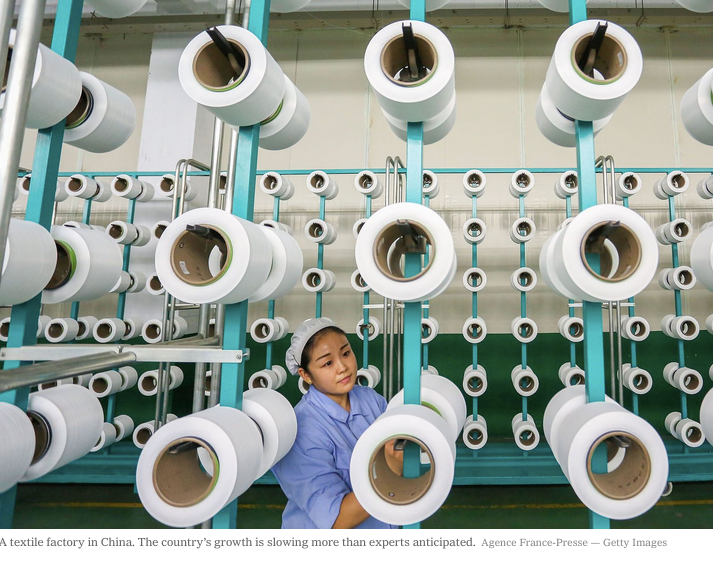LONDON — Only a few months ago, the world’s fortunes appeared increasingly robust. For the first time since the wealth-destroying agony of the global financial crisis, every major economy was growing in unison.
So much for all that.
The global economy is now palpably weakening, even as most countries are still grappling with the damage from that last downturn. Many nations are mired in stagnation or sliding that way. Oil prices are falling and factory orders are diminishing, reflecting slackening demand for goods. Companies are warning of disappointing profits, sending stock markets into a frenetic bout of selling that reinforces the slowdown.
Germany and Japan have both contracted in recent months. China is slowing more than experts anticipated. Even the United States, the world’s largest economy, and oft-trumpeted standout performer, is expected to decelerate next year as the stimulative effects of President Trump’s $1.5 trillion tax cut wear off, leaving huge public debts.
The reasons for this turn run from rising interest rates delivered by the Federal Reserve and other central banks to the unfolding trade war unleashed by the Trump administration. The likelihood that Britain’s torturous exit from the European Union will damage trade across the English Channel has discouraged investment.
Read full article




